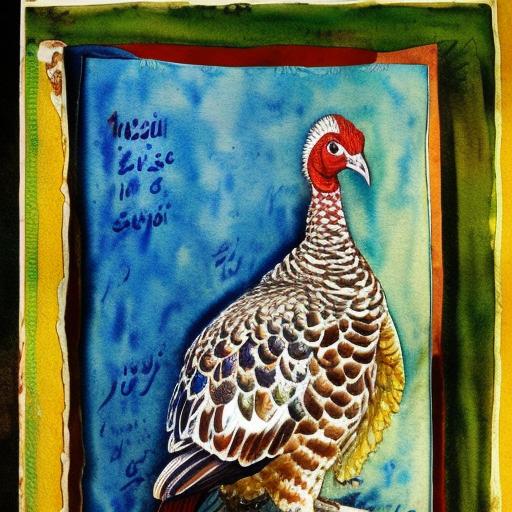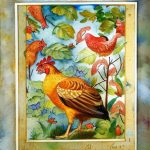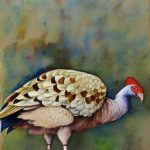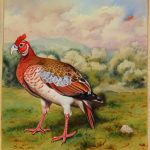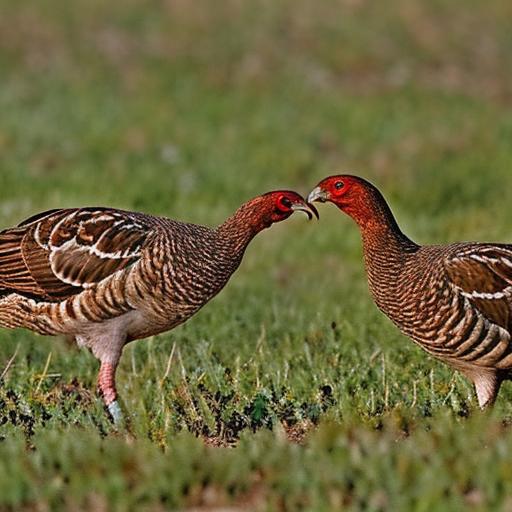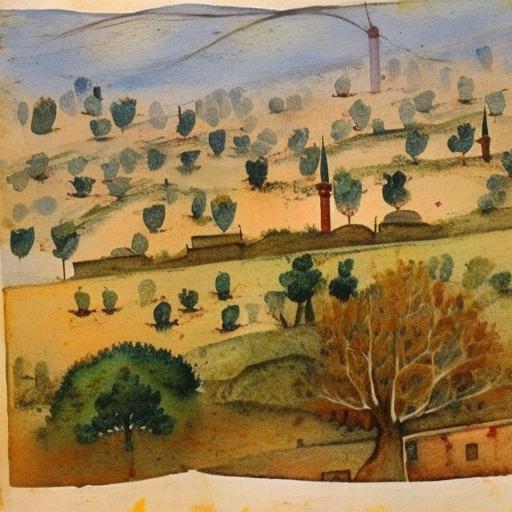Turkey breeds are a diverse group of birds that have been selectively bred for various purposes, including meat production, egg laying, and ornamental purposes. There are many different breeds of turkeys, each with its own unique characteristics and traits. Some breeds are better suited for meat production, while others are prized for their beautiful plumage and ornamental value. Understanding the different turkey breeds and their specific traits is essential for anyone looking to raise turkeys, whether for commercial purposes or as a hobby.
Turkeys are native to North America and were domesticated by Native Americans thousands of years ago. Over time, different breeds of turkeys have been developed through selective breeding to meet the specific needs of farmers and consumers. Today, there are dozens of different turkey breeds, each with its own distinct characteristics and traits. Some breeds are better suited for free-range farming, while others thrive in confinement. Understanding the differences between turkey breeds is essential for anyone looking to raise turkeys, as it can help ensure the success and productivity of their flock.
Key Takeaways
- Turkey breeds come in a variety of types, each with its own unique characteristics and traits.
- Heritage breeds of turkey are traditional breeds that have been around for centuries and are known for their hardiness and flavor.
- Broad breasted breeds of turkey are popular in commercial production due to their fast growth and large breast size.
- Wild turkey subspecies are the original turkeys found in the wild and have distinct regional variations.
- Rare and endangered turkey breeds are at risk of extinction and are important for preserving genetic diversity.
- Commercial turkey breeds are specifically bred for mass production and are often raised in industrial farming operations.
- When selecting the right turkey breed for your farm, consider factors such as space, climate, and your specific production goals.
Heritage Breeds of Turkey
Heritage turkey breeds are traditional breeds that have been raised by farmers for generations. These breeds are known for their hardiness, adaptability, and excellent flavor. Heritage breeds are often raised on small farms and are prized for their ability to thrive in free-range environments. Some popular heritage turkey breeds include the Bourbon Red, Narragansett, and Standard Bronze. These breeds are known for their beautiful plumage and excellent flavor, making them a popular choice for small-scale farmers and homesteaders.
Heritage turkey breeds are an important part of our agricultural heritage and play a crucial role in preserving genetic diversity within the turkey population. These breeds are often raised using traditional farming methods and are prized for their ability to forage for food and thrive in outdoor environments. Heritage turkey breeds are also known for their excellent flavor and texture, making them a popular choice for consumers looking for high-quality, ethically raised meat. By raising heritage turkey breeds, farmers can help preserve these traditional breeds and contribute to the conservation of genetic diversity within the turkey population.
Broad Breasted Breeds of Turkey
Broad breasted turkey breeds are a popular choice for commercial meat production due to their fast growth rate and high meat yield. These breeds have been selectively bred to produce large amounts of meat in a relatively short amount of time, making them a cost-effective option for large-scale turkey farming operations. Some popular broad breasted turkey breeds include the Broad Breasted White and Broad Breasted Bronze. These breeds are known for their rapid growth and high meat yield, making them a popular choice for commercial turkey producers.
Broad breasted turkey breeds have been selectively bred for their ability to produce large amounts of meat in a short amount of time. These breeds are typically raised in confinement and are fed a high-protein diet to promote rapid growth and muscle development. While broad breasted turkey breeds are prized for their high meat yield, they are also known for their susceptibility to health issues such as heart problems and leg deformities. As a result, many small-scale farmers and homesteaders prefer to raise heritage turkey breeds, which are better suited for free-range environments and have fewer health issues.
Wild Turkey Subspecies
Wild turkey subspecies are the original ancestors of domesticated turkeys and can be found throughout North America. These birds are known for their beautiful plumage and impressive size, with adult males (known as toms) weighing up to 24 pounds. There are six different subspecies of wild turkeys, each with its own unique characteristics and range. Some popular wild turkey subspecies include the Eastern wild turkey, Osceola wild turkey, and Rio Grande wild turkey. These birds play an important role in the ecosystem and are prized by hunters for their challenging behavior and excellent flavor.
Wild turkey subspecies are an important part of North America’s natural heritage and play a crucial role in maintaining healthy ecosystems. These birds are known for their ability to thrive in a variety of habitats, including forests, grasslands, and wetlands. Wild turkeys are also an important food source for many predators, including coyotes, bobcats, and birds of prey. By understanding the different subspecies of wild turkeys and their specific habitat requirements, conservationists can work to protect these birds and ensure their long-term survival.
Rare and Endangered Turkey Breeds
Some turkey breeds are considered rare or endangered due to declining population numbers and genetic diversity. These breeds are often at risk of extinction due to factors such as habitat loss, disease, and competition from more common breeds. Some rare and endangered turkey breeds include the Jersey Buff, Midget White, and Royal Palm. These breeds are prized for their unique characteristics and traits, making them an important part of our agricultural heritage. By raising rare and endangered turkey breeds, farmers can help preserve these traditional breeds and contribute to the conservation of genetic diversity within the turkey population.
Rare and endangered turkey breeds play a crucial role in preserving genetic diversity within the turkey population and are an important part of our agricultural heritage. These breeds are often raised using traditional farming methods and are prized for their ability to thrive in outdoor environments. By raising rare and endangered turkey breeds, farmers can help preserve these traditional breeds and contribute to the conservation of genetic diversity within the turkey population.
Commercial Turkey Breeds

Commercial turkey breeds are specifically bred for meat production on a large scale. These birds have been selectively bred to produce large amounts of meat in a relatively short amount of time, making them a cost-effective option for commercial turkey producers. Some popular commercial turkey breeds include the Hybrid Converter, Hybrid Converter Plus, and Hybrid Converter Platinum. These breeds are known for their rapid growth rate, high meat yield, and efficient feed conversion ratio, making them a popular choice for large-scale turkey farming operations.
Commercial turkey breeds have been selectively bred for their ability to produce large amounts of meat in a short amount of time. These birds are typically raised in confinement and are fed a high-protein diet to promote rapid growth and muscle development. While commercial turkey breeds are prized for their high meat yield, they are also known for their susceptibility to health issues such as heart problems and leg deformities. As a result, many small-scale farmers and homesteaders prefer to raise heritage turkey breeds, which are better suited for free-range environments and have fewer health issues.
Selecting the Right Turkey Breed for Your Farm
When selecting a turkey breed for your farm, it’s important to consider your specific goals and needs. If you’re looking to raise turkeys for meat production on a large scale, commercial turkey breeds may be the best option due to their rapid growth rate and high meat yield. However, if you’re interested in raising turkeys for ornamental purposes or as a hobby, heritage turkey breeds may be a better choice due to their beautiful plumage and excellent flavor.
It’s also important to consider the specific requirements of each breed, such as space, feed, and housing needs. Some turkey breeds thrive in free-range environments and require plenty of space to roam and forage for food, while others are better suited for confinement. By understanding the specific traits and characteristics of each breed, you can make an informed decision about which breed is best suited for your farm.
In conclusion, there are many different turkey breeds to choose from, each with its own unique characteristics and traits. Whether you’re looking to raise turkeys for meat production, egg laying, or ornamental purposes, it’s important to understand the specific requirements of each breed in order to make an informed decision about which breed is best suited for your farm. By selecting the right turkey breed for your farm, you can ensure the success and productivity of your flock while contributing to the preservation of genetic diversity within the turkey population.
If you’re interested in learning about different breeds of turkeys and how to standardize them, you might also want to check out this article on how many eggs geese lay. Understanding the breeding and egg-laying habits of geese can provide valuable insights into the standardization process for turkey breeds.
FAQs
How many breeds of turkey are there?
There are six primary breeds of turkey that are recognized by the American Poultry Association. These breeds are the Bronze, Narragansett, White Holland, Bourbon Red, Beltsville Small White, and Royal Palm.
What are the characteristics of the different turkey breeds?
Each breed of turkey has its own unique characteristics in terms of size, color, and feather patterns. For example, the Bronze turkey is known for its metallic sheen and large size, while the Narragansett turkey has a distinctive gray color with black and white markings.
Are all turkey breeds suitable for meat production?
While all turkey breeds can be raised for meat, some breeds are specifically bred for their meat production qualities. The Broad Breasted White and Broad Breasted Bronze are two common commercial breeds that are favored for their large size and fast growth rate.
Do different turkey breeds have different temperaments?
Yes, different turkey breeds can have varying temperaments. Some breeds may be more docile and calm, while others may be more active and independent. It’s important to consider the temperament of a specific breed when choosing turkeys for a farm or homestead.
Are there heritage breeds of turkey?
Yes, the Bronze, Narragansett, White Holland, Bourbon Red, and Royal Palm are all considered heritage breeds of turkey. These breeds have a long history in the United States and are valued for their genetic diversity and ability to thrive in outdoor, free-range environments.
Meet Walter, the feathered-friend fanatic of Florida! Nestled in the sunshine state, Walter struts through life with his feathered companions, clucking his way to happiness. With a coop that’s fancier than a five-star hotel, he’s the Don Juan of the chicken world. When he’s not teaching his hens to do the cha-cha, you’ll find him in a heated debate with his prized rooster, Sir Clucks-a-Lot. Walter’s poultry passion is no yolk; he’s the sunny-side-up guy you never knew you needed in your flock of friends!

